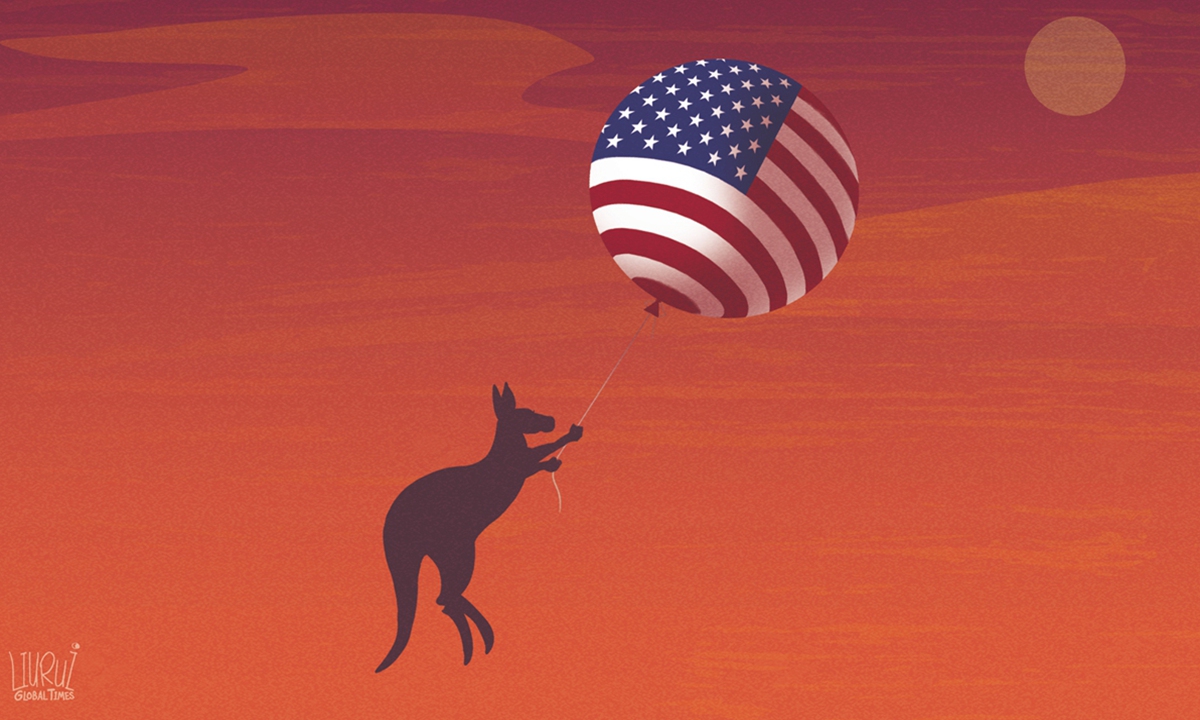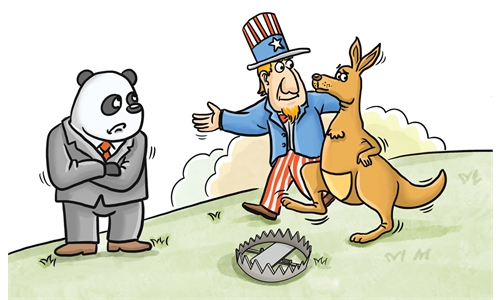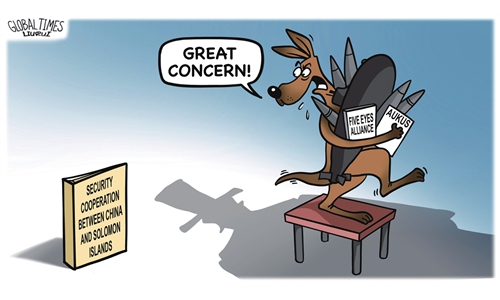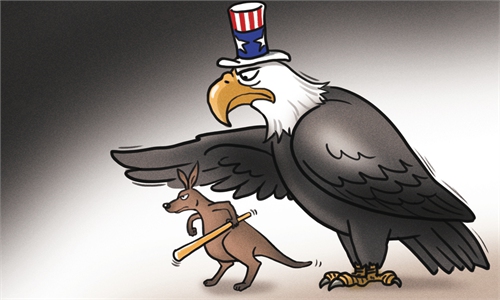Australia, US’ flagrant interference in Solomon Islands’ security deal disregards independence

Illustration: Liu Rui/GT
It was reported on Thursday that two of Australia's top intelligence chiefs visited the Solomon Islands to meet with the island country's Prime Minister Manasseh Sogavare. On Saturday it was revealed by the Financial Times that Kurt Campbell, the US National Security Council Coordinator for the Indo-Pacific Affairs, would also fly to Honiara, capital of the Solomon Islands, in April along with some senior US state department officials.The target of this flurry of visits and discussions is openly proclaimed and clear-cut: To thwart a security cooperation deal between the island nation and China.
In November 2021, a number of violent rioters were inflamed by some anti-China forces in the Solomon Islands. In particular, those in support of Taiwan secessionism rampaged capital Honiara, violently attacking, damaging and looting Chinese-run businesses and Chinese homes. Insurgents ravished and set fire to shops in the city's Chinatown as well as ethnic Chinese schools and banks. The Solomon Islands government resolutely quashed the 10-day long citywide disturbance and restored social order and stability.
Recognizing the fact that there are more than 2,000 Chinese ethnics and businesspeople in the Solomon Islands, Honiara discussed aid and support with the Chinese police authorities. China's police force provided police equipment including shields, helmets, and sent an advisory group to their counterparts on the Solomon Islands.
Subsequently, the Solomon Islands and the People's Republic of China negotiated to sign a bilateral agreement as a way to further boost security cooperation between the two countries.
As an independent and sovereign country, the Solomon Islands does not need any other country's consent to enter into a bilateral pact. Its government and statesmen have the equal political wisdom and governance ability as those in Washington and Canberra to make prudent judgment and judicious decisions.
US and Australian politicians and strategists have categorically been twisting the truth to mislead the international community about the nature of the cooperation between China and the Solomon Islands. The bilateral security cooperation agreement, which is well defined to ensure the local social stability and curb any future rioting, has been distorted as a precursor to a Chinese military base on the island. Some Australian media outlets have been imaginatively painting a picture of an imminent Chinese military threat on Australia's doorstep, further fabricating the infamous "China threat" theory.
Canberra and Washington's flagrant interference in the Solomon Islands' domestic affairs is in complete disregard of the South Pacific country's independence. PM Sogavare indignantly repudiated such blatant meddling and intrusion as "insulting" and disrespecting his country's sovereignty.
For decades, Australia has been regarding the South Pacific as its own backyard and sphere of influence. It has been adopting a colonialist-style "dollar diplomacy," using aid and financial support as a coercive way to impose its own ideology and political system on the Pacific island nations. The recipient countries, in turn, have to prioritize Australia as their "partner of choice," and shape and reshape their foreign policy in line with Canberra's strategic blueprint.
Even though Australia has claimed to be the largest donor of aid to the Pacific countries, its own national interests take precedence.
For instance, in Australia's 2022 budget for the Solomon Islands, A$ 65 million ($48.3 million) is in fact allocated to build a new complex for the Australian High Commission in Honiara, rather than to be used for any programs for local schools or hospitals.
On the other hand, Australia has been viciously slandering China's aid programs to build and improve the local infrastructure in the South Pacific as "white elephant projects" and "debt traps." The ultimate aim is to ostracize and eliminate China's mutually beneficial cooperative relations with the island nations. Australia's intention runs counter to the interest and will of the local governments and peoples.
In recent years, Canberra has been actively committed to Washington's Indo-Pacific Strategy, which is purported to contain and deter China's peaceful development. The Morrison administration has been attempting to instrumentalize and even weaponize the Pacific island countries in its anti-China campaign.
The Solomon Islands has adopted a discreet and pragmatic foreign policy of being "friends to all and enemies to none." Australia and other Western countries should respect the sovereignty and autonomy of this free and independent country.
The author is president of the Chinese Association of Australian Studies and director of the Australian Studies Centre at East China Normal University. opinion@globaltimes.com.cn



